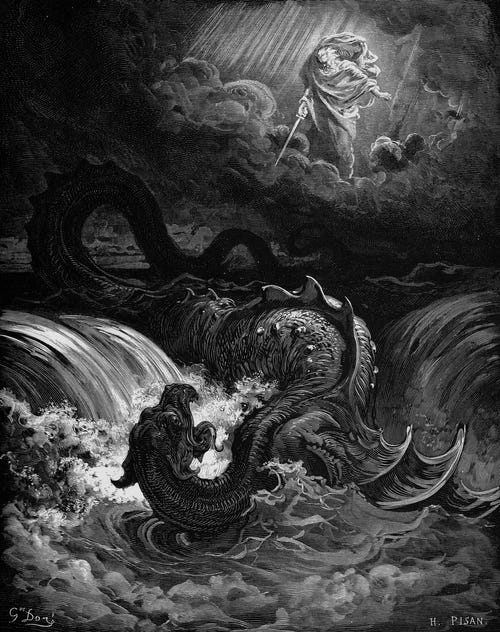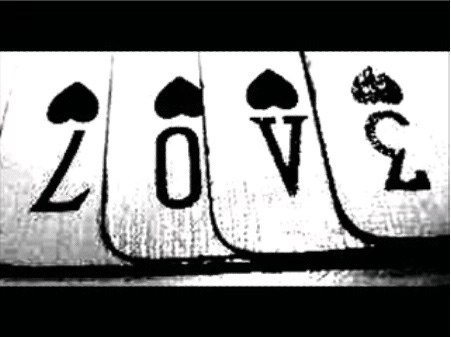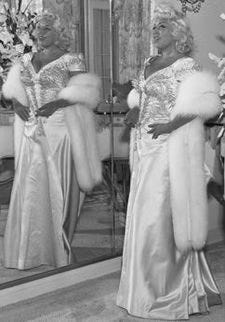Note: You can start reading here or anywhere, then go back. See Table of Contents. Come in the middle? Robert is the narrator who discovers after his wife Lena has died that she had a lover, Isaac. Evan is Isaac’s wife. Robert is on a search for how he lost Lena: He’s creating the story through memory, invention and a search for the truth and his role in what happened—and by stalking Isaac.
Isaac and the Baby
He’d come to the office from Lena’s bed, had slept barely an hour, hadn’t gone home. The sight of Lena’s husband—Was that him?—made him wonder if he was dreaming. Who’s there? he wanted to yell across the cars, but turned and walked swiftly out of the garage to his office instead. To acknowledge him would be absurd. On the brink of disaster. Maybe he was dreaming, awake, but he feared such nonsense, Lena’s dreaming that left her confused and telling him, “Maybe you’re not real. Maybe I made you up.” He wanted to call her, try to explain what he’d done, coming to her bed. No, there was no explaining it. Better to explain it away with a joke like, “Hey, I think we could use some minimalism, for a change.” Make her laugh and then she’d use his line on him, “You think?” He wanted the real, the facts. He wanted right angles, simple, clear. He wanted Geometry. He needed to get back on track. Work was the answer and he turned to the bones.
He needed to affirm what he guessed from his early examination: That the baby was a full-term fetus because of the way the skeleton of the fetus forms inside the womb, the length of the tiny bones. The bones aren’t fused but connected with cartilage while they grow, cartilage, now long gone. The moving and lifting had made a mess of the skeletal remains.
The bones had been found in a suitcase in an attic, an old colonial in Tenley Town. The new owners had called the police who’d brought the suitcase to him.
What he had—not helped by the fact that the suitcase had been moved—was a jigsaw puzzle, fragments, fragmented. He needed to lay them out, to count them, measure them, and he had to be sure the bones were human skeletal ossifications, not the bones of a small animal—a rare but occasional mistake that can be made if the examination isn’t done properly.
He began with the largest pieces, the fragments of the skull, and then moved on to the painstaking process of laying out the unconnected frame of the rest of the skeleton, with spaces between each piece where shafts of cartilage would have later grown and connected the parts.
The bones of the fingers were so tiny, like chips of chalk in his hand, barely there. He could crush one with his own fingers, the way he felt when he took her in his arms, when his hands covered her tiny back, that he might crush her, as he pressed her back, one hand on either side of her spine, how his hands engulfed her—small, narrow, bare and barely.
He looked up and there she was.
She saw the work. “The bones.”
“Yeah, the baby. A mess of bones. Now, they’ve got me doing jigsaw puzzles.”
“You any good at them? I used to love to do them when I was a kid.”
“Nah, I worry that I’ll end up sitting at a card table when I’m old with nothing left to do but those damn things. Maybe you and I’ll end up that way. Now that’d be a hoot, wouldn’t it? But I’d love to do a puzzle with you.”
She said, “Do you love Evan?”
“Now, how does that follow?”
“Oh, you don’t think that follows, do you?”
“Okay, in a way it does. I love her, but I don’t like her.”
“What does that mean?”
“It means everything.”
And the word like became clearer to her. She and Isaac didn’t say the word love out loud about each other because the word couldn’t be used in this way of ‘something is to something else.’ She had loved the child. She had no way to liken that fact to anything else. She couldn’t tell him. She said instead, knowing that he wouldn’t understand, “In the meantime God sported with the living male Leviathan.”
“You’re quoting again, and damn it, Lena, making no sense.” He’d had it with her dreaming, didn’t want to enter this world with her, was sure they’d both be lost if he did. “What do you mean?”
She couldn’t explain what she’d done but knew it had been best the child hadn’t been born. “Leviathan, the monster. I feel like a monster. They say, the rabbis do, that God killed Leviathan’s mate to save the world. Leviathan can’t be controlled if he mates and then there’d be more monsters. He’s alone, without a mate—only God can sport with him. We do something we can’t control. You do know that, don’t you? The best and worst of what we are. You, in my bed this morning. We’re on the brink of disaster. You’re right about that.” And she thought, Maybe he wants to be caught.
“I’m just circling here.”
“Going around in circles, huh? Like a plane waiting to land?”
“I don’t know. I wonder if, I think as we’ve discussed over the years, perhaps on subjects such as my father, if I haven’t become accustomed to and adept at moving things under the now crowded rug, that that’s how I exist and deal with things.” His father was the one who’d stopped his imaginary world, called a half-halt that led not to his effective management, but to a full rejection of a part of himself because he blamed his father for the end of his painting—Not a matter of consequence. It could have been a half-halt but ended up a full stop. His father didn’t understand what Isaac had learned when he’d taken up riding: The partnership between horse and rider, the give and take. Isaac could still hear his father’s voice down in their basement when he was a boy, when he’d moved from sketching to watercolors, a more difficult medium and one that suited him. Even if you’re good, you’ll never be good enough. He kept a box of dried-up watercolors in his tool shed.
“Yeah, under the rug. Kind of the way you’ve trapped me.” She could see herself under the rug with his father—he hadn’t spoken to him since his mother died because he couldn’t forgive him. When she’d gotten the cancer, his father couldn’t handle it, went to Pimlico race track in Baltimore, came home smelling of smoke and beer. The losing two-buck bets spilled out of his jacket pocket, incriminating him when he pulled out his handkerchief and shed contrite tears at her bedside. To Isaac’s mind, he was weak. “No staying power,” he’d said. Isaac had taken over the care—couldn’t do it himself but had hired a good solid woman, a practical nurse who could. And after they’d buried her, Isaac had had no use for his father who’d hurt him so much when he was a boy, but that was the unspoken part of the rejection. Lena could imagine Isaac’s father under the rug with her. She could hear him. He thinks I’m a sinner. And what if Isaac knew what she’d done?
“Trapped you?” Isaac said, “How so? By circling? By shoving things under the rug?”
“Oh, you’re not the only one. My rug’s pretty crowded. And at least you do exist and deal with things in your way. Me, I’m disappearing.”
“It would be more accurate to say you’re a moving target. How about we let the dust settle some before I take aim, maybe?”
“Well, go ahead and take aim. Here I am, a target ready to be shot dead. And dust to dust, sayeth the Good Book.”
“A bit dramatic, wouldn’t you say? Nah, a moving target continues to be very appealing.”
“Now that’s what a girl wants to hear: that she’s appealing. You can do better than that.”
“You know that’s not what I meant.”
“What did you mean?”
“That if we stopped seeing each other, I think it would kill me.”
“A bit dramatic, wouldn’t you say?”
He laughed.
“So what ya gonna to do about that, cowboy?”
And he laughed again, but thought she was reading his mind, that she knew that horses were riding in his head. “I’m not gonna call a half-halt, if that’s what you mean. But I know you don’t know what that means. You don’t need to know anything but this. If I knew what I was doing, and I don’t, but if I did, I’d say that that we’ve been forming a partnership even if it seemed I was the one who was doing the leading.”
No point in saying it: a silent partnership.
He said, “The ultimate in minimalism.”
“What?”
“Your silence.”
“Do you think so? Isn’t silence sometimes so loud it’s anti-minimalism?”
He knew she had him. “Got me. Bang. I’m dead.”
“So what ya gonna to do about that, cowboy?”
“If I’m dead, what can I do?”
“A cowboy never dies.”
He laughed and wanted to kiss her. He knew they were in trouble. He wasn’t sure which of them was in more. “Again, cowboy. Like I’m with Mae West, or something. Maybe we could dress up or something. And then undress, or something.”
“Or maybe not,” she said.
And then he didn’t answer.
“Are you upset?” she asked.
“Upset? Well, I’m not. Why, do I sound it?”
“Your silence, proving my point, by the way. And that I love.”
“Actually, I’m charmed when you beat me at my own game—even poker. You know that.”
“You’re a nice man.” She laughed. “I hope that doesn't make you feel like a Plymouth.”
“Why would it?”
“Because that’s what Robert says when I say it to him. Nice and reliable.”
“And do you believe it when you say it? That he’s a Plymouth?”
“I believe it.”
He laughed, but this time with a twinge of jealousy. I had her and he didn’t know how to have her. He’d stood by her bed where he didn’t belong, seen the blue of her nightgown. He wanted to go home and paint her asleep. This was what she did to him. He said, “Lena, you’re the dream. I’m a fool.”
She reached out toward the bones on the table but didn’t touch them.
He opened his palm. The tiny pieces of bone lay between them in his hand, extended to her. “Like you,” he said and watched her go with a last turn of her head that told him what he knew, that she was in love with him because she couldn’t resist the turn. In the midst of all that they might never be, that he might want and never have, he was, for this one moment of fragility, safe.△
Love,










Oh, Mary... I'm late to the party but your dialogue is just breathtaking! So unexpected and wonderful. Like jazz... the music of surprise.
Such playful banter atop layers and layers of foreboding angst!
“He’s alone, without a mate—only God can sport with him. We do something we can’t control. You do know that, don’t you? The best and worst of what we are.”